
Red Sox Fans Turn Concourse Into Slide During Rain Delay
The Boston Red Sox hosted the New York Mets on Friday night, and the game was paused in the bottom of the fourth inning by a rain delay. As most MLB fans tend t
2023-07-22 10:29
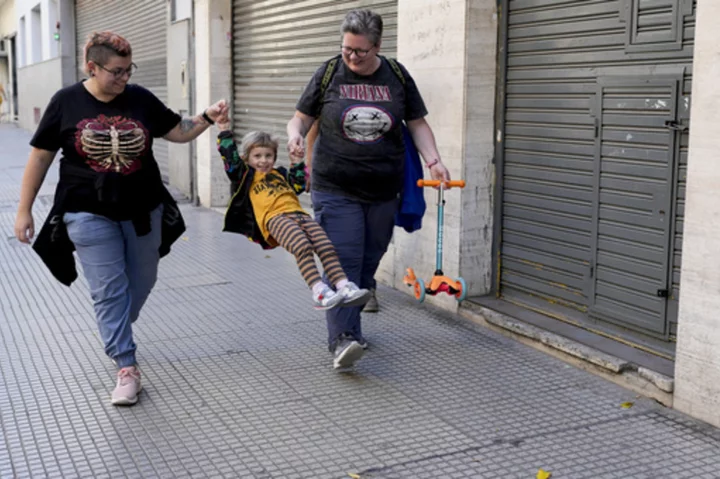
A growing number of LGBTQ+ Russians seek refuge from war, discrimination in Argentina
Anastasia Domini and wife Anna are part of an increasing number of Russians from the LGBTQ+ community who have decided to leave their homeland to escape discrimination and settle in Argentina, where same-sex marriage has been legal for more than a decade
2023-05-27 13:23

Perfect day as Rovanpera wins all nine stages in Estonia
World champion Kalle Rovanpera swept all of Saturday's nine stages on the Rally of Estonia as the Toyota driver opened up a huge gap...
2023-07-23 02:55

Ukraine-Russia war – live: Kyiv preparing for ‘new wave’ of attacks on Avdiivka as Moscow hits key oil refinery
Ukraine is preparing for a “new wave” of Russian attacks on the besieged eastern town of Avdiivka, according to the region’s military chief. “Our boys are preparing for a new wave,” head of the region’s military administration Vitaliy Barabash said. On Monday, Kyiv claimed Russia was preparing to conduct “meat assaults” in the area by throwing troops at the front line without artillery cover. It comes as Russia struck Ukraine’s Kremenchuk oil refinery in Poltava after launching scores of drones and a missile overnight, military officials said. The refinery was set ablaze during a broader attack which targeted military and critical infrastructure, Filip Pronin, head of the region’s military administration, said. “The fire has been extinguished. The situation is under control,” he said on Telegram, adding that there were no reports yet of casualties as officials sought to gather more details of the destruction. The air force said 18 of the 20 Russian-launched kamikaze Shahed drones were destroyed before reaching their targets, as was the missile. Meanwhile, Ukrainian troops have made confirmed advances near Bakhmut, Donetsk, and Robotyne, Zaporizhzhia, according to the Institute for the Study of War. Read More Russian soldiers accused of killing family of nine as they slept in Russian-occupied Ukrainian town More than 40% of Ukrainians need humanitarian help under horrendous war conditions, UN says A UN report urges Russia to investigate an attack on a Ukrainian village that killed 59 civilians Moscow succession: What would happen if Putin dies?
2023-11-01 17:27
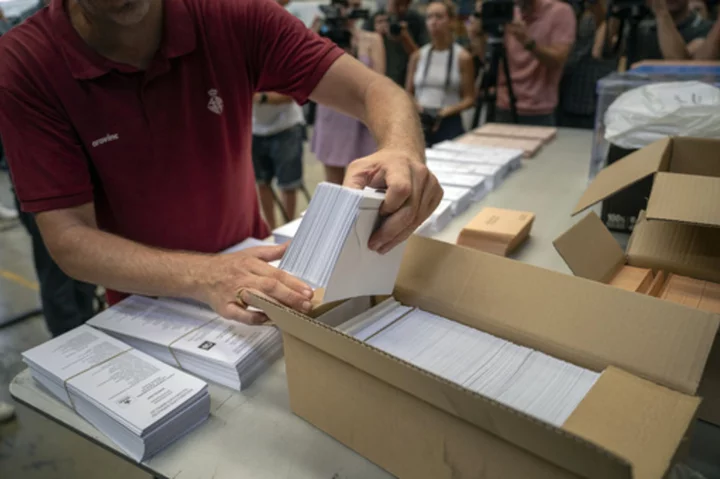
Voting fraud claims spread ahead of Spain's pivotal election
Claims of vote rigging and election fraud are spreading in Spain ahead of that nation's pivotal election on Sunday
2023-07-19 18:25
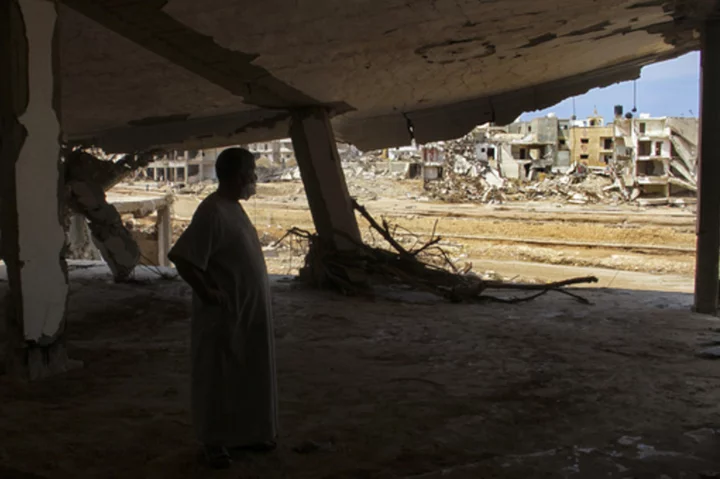
Libya's top prosecutor says 8 officials jailed as part of investigation into dams' deadly collapse
Libya’s chief prosecutor says he has ordered the detention of eight current and former officials pending his investigation into the collapse of two dams
2023-09-25 17:57

MLB Rumors: Yankees, Astros set for trade showdown for big-name bat
The New York Yankees and Houston Astros could be in a battle with one another yet again, this time for a big-name outfielder at the trade deadline.The MLB trade deadline is a matter of days away, and teams have reached an important point of the season, and that's to determine whether they a...
2023-07-23 09:30

Navajo Nation declares widespread Medicaid scam in Arizona a public health state of emergency
A widespread Arizona Medicaid scam that has left an unknown number of Native Americans homeless on the streets of metro Phoenix is being declared a public health state of emergency by the Navajo Nation as fraudulent sober living homes lose their funding and turn former residents onto the streets
2023-06-22 09:16

It's 150 not out as India, Australia clash in World Cup
India kick off their World Cup campaign against Australia in Chennai on Sunday in the 150th clash in one-day internationals between...
2023-10-06 10:20

Best Buy reports declines in 1Q profits and sales as gadget spending remains weak
Best Buy reported declines in fiscal first-quarter sales and profits as the nation’s largest consumer electronics chain continues to wrestle with a consumer spending slowdown in gadgets
2023-05-25 20:58

BYU gets welcomed to Big 12 with massive Kansas hit, scoop-and-score
BYU has officially had its welcome to the Big 12 moment, thanks to none other than Kansas. Although Lance Leipold certainly has Kansas football in a fantastic p
2023-09-24 06:53

Sam Allardyce has no regrets about taking Leeds job after damaging West Ham loss
Sam Allardyce insisted he had no regrets about taking the Leeds job despite the Whites looking destined for relegation from the Premier League. Allardyce’s rescue mission has not gone to plan and goals from Declan Rice, Jarrod Bowen and Manuel Lanzini saw West Ham come from behind to inflict a damaging 3-1 defeat. Allardyce arrived at Elland Road as a last-ditch appointment with four games to go, but his first three matches have provided just one point. Now they need to beat Tottenham next weekend and hope a Bournemouth side with nothing to play for can do them a favour at Everton. Moreover, should Leicester beat Newcastle on Monday night, the Whites will start the final day second from bottom. Yet Allardyce, 68, insists he knows where the problems lie and, were he to be given the chance, how to fix them. The former West Ham boss said: “The challenge is to try to beat Tottenham and deliver a performance. We’ll give ourselves a chance if we win and then see what happens. Our only hope is to win that game. “If we don’t make it in the end it’s a case of trying to do your best for the club. I can only try my best and give the players the right instructions to show them how win a game of football. Unfortunately for me and for them it hasn’t worked yet. “It was always going to be a difficult task. Lots of people said I’m mad for taking it. I’m not mad. I just love football and Leeds United was too big a job to turn down for me, however short it was. “The evidence is all there to know what’s wrong and what to put right. It doesn’t take long to work it out, does it, after 1,100 games as a manager. I sorted this club out, didn’t I? Still here, isn’t it? I’ve sorted a few others out. “At the end of the season we’ll have that discussion. Hopefully in the Premier League, fingers crossed.” Leeds need more than crossed fingers to save themselves, even though they took the lead through Rodrigo’s volley. They lost Patrick Bamford to injury and Rodrigo was also struggling by the end, leaving Allardyce with even more of a headache next weekend. “The impact of the substitutes wasn’t what I expected, none of them made a difference when we needed them,” he added. West Ham, safe from relegation and with a Europa Conference League final to look forward to, should have been easy pickings. But Leeds’ afternoon unravelled when Rice – named Hammer of the year before kick-off, six years to the day since he made his debut against Burnley – marked what is likely to be his last home game for the club with the equaliser. Boss David Moyes again straight-batted questions about the England midfielder’s likely move away this summer. “Declan played very well today, but he’s been playing well all season. He scored a really good goal, he’s a very good footballer,” said the Scot. Bowen was played in by Danny Ings to hit the second and substitute Lanzini was given a tap-in in stoppage time thanks to Lucas Paqueta’s audacious assist. “It’s a terrific win after the week we’ve had,” added Moyes. “You’re never quite sure after a Thursday game to Sunday, and from the opening 15 minutes I wasn’t sure. “But they showed great character, and great mentality. It was a really good victory in the end.” Read More Charity boss speaks out over ‘traumatic’ encounter with royal aide Ukraine war’s heaviest fight rages in east - follow live Lee Gregory’s face mask returned following Sheffield Wednesday appeal Ronan O’Gara reveals Ireland ambition after latest Champions Cup success Champions Manchester City given rapturous reception ahead of Chelsea match
2023-05-22 00:25
You Might Like...

AWOL Vision to Unveil Ground-breaking Triple Laser Projectors with Dolby Vision at IFA 2023
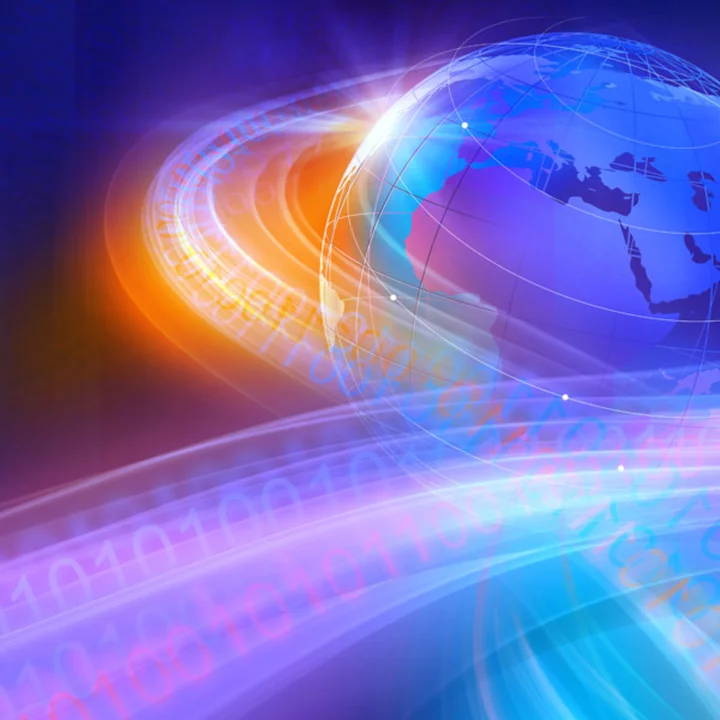
Paris Olympics torch relay to go to Mont Saint Michel and French Caribbean
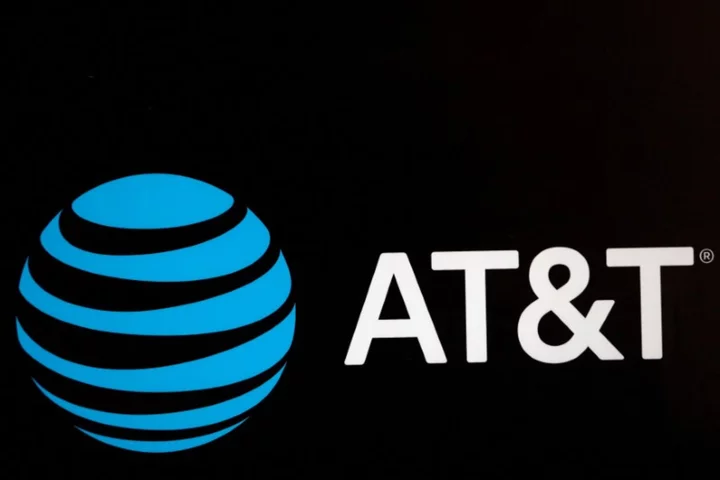
AT&T says tests at some lead cable sites show no public health risk

Wagner chief Yevgeny Prigozhin listed amongst passengers on board plane that crashed, says Russian state media

NASA picks Bezos' Blue Origin to build lunar landers for moonwalkers

Who are Elys' parents? 'Too Hot to Handle' Season 5 star opens up about 'losing sense of care' because of divorce

Poland charges Russian ice hockey player with spying

AP PHOTOS: Singapore gives the world a peek into our food future
